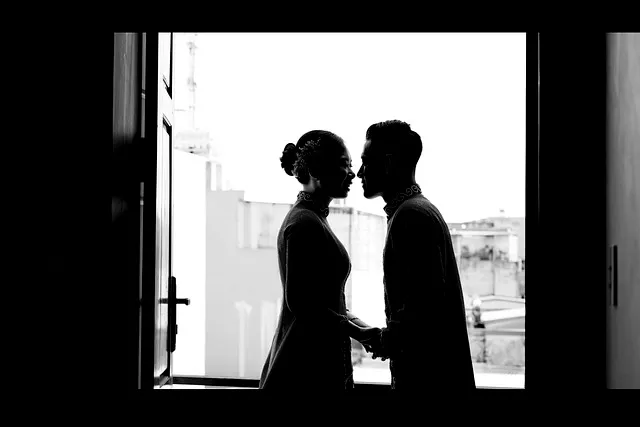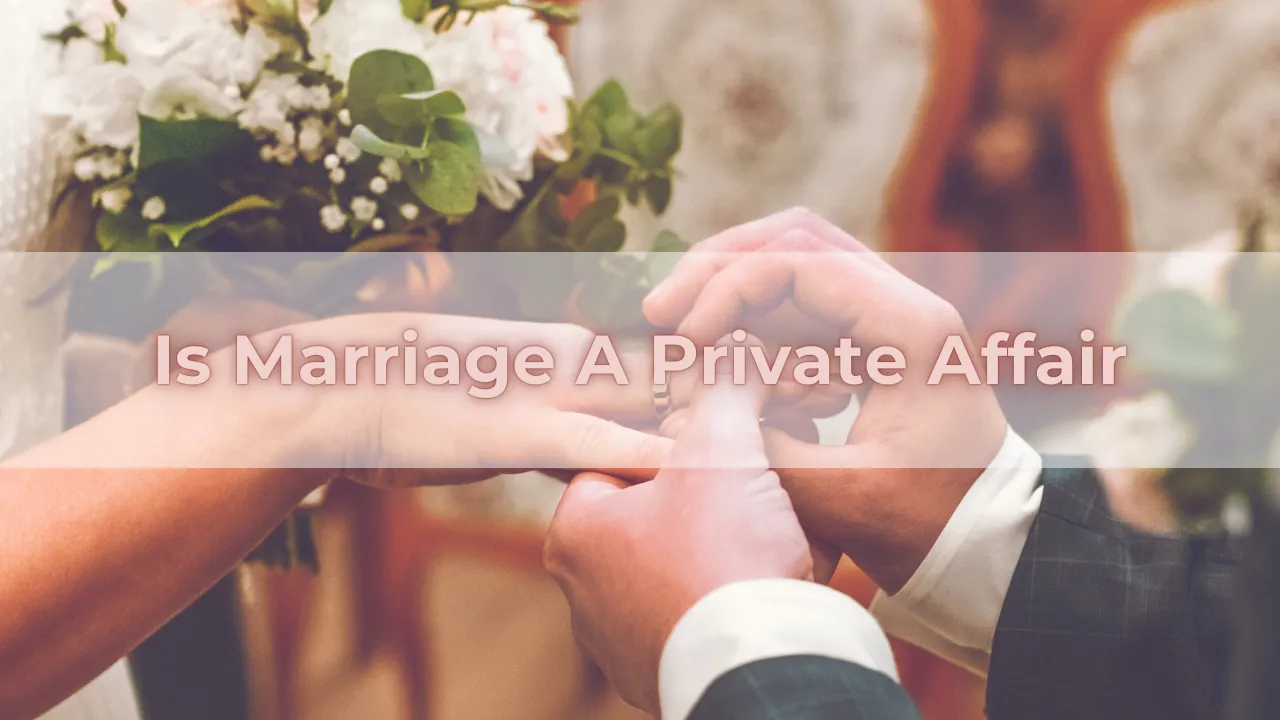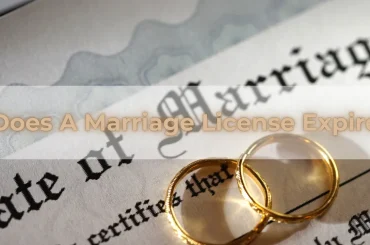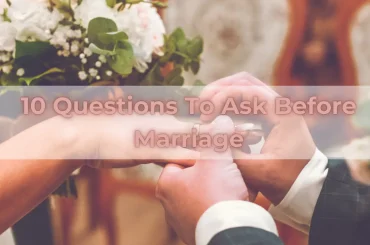Marriage has been a cornerstone of human society for centuries, but the question of whether it should be a private affair is a nuanced and complex one.
While the personal nature of marriage is undeniable, its intersection with societal, cultural, legal, and even political frameworks complicates the idea of privacy in marriage.
In this article, we explore what it means to say marriage is a “private affair” and how modern life has influenced the way we perceive the privacy of this intimate union.
Table of Contents
The Personal Nature of Marriage

At its core, marriage is an intensely personal bond. It represents the union of two individuals who choose to commit to one another in a partnership, often marked by love, companionship, and mutual support.
For many, this is deeply private, involving personal vows, shared moments, and a life intertwined with another person. This intimate aspect of marriage is why the concept of it being a “private affair” holds strong appeal.
Couples may choose to keep the details of their relationship to themselves, away from the scrutiny of society, family, and even close friends. Personal beliefs, shared values, and private disagreements make the relationship unique and central to the identity of the couple.
The expectation of privacy in this realm has long been a matter of personal choice, with individuals deciding how much or how little they wish to share with the world.
The Role of Society and Culture
However, marriage is also a social institution with a significant cultural and societal dimension. From weddings to anniversaries, society often marks the union of two people with rituals and celebrations.
The expectations surrounding marriage vary greatly depending on cultural, religious, and regional norms. In some cultures, marriages are highly public affairs, sometimes arranged by families or communities, with numerous traditions that involve the extended social circle.
Moreover, societal expectations often require married couples to publicly adhere to certain roles or behaviors. The pressure to conform to these expectations may make it difficult for individuals to consider their marriage entirely private, especially when it comes to issues like family planning, financial matters, or career decisions.
In many ways, the act of marriage—especially in traditional settings—is seen as a public declaration of one’s commitment, thus challenging the notion of it being a purely private matter.
Legal and Financial Implications
Marriage, by definition, is not just a personal or social matter but also a legal one. Governments grant certain rights and privileges to married couples, including tax benefits, inheritance rights, and healthcare decision-making power.
These legal rights complicate the idea of marriage as a strictly private affair. The laws surrounding marriage vary between countries, and even within countries, different states or regions may have different rules governing what constitutes a legal marriage and the rights of those involved.
Additionally, when issues such as divorce, custody, or alimony arise, the legal system becomes deeply involved in what was once considered a private matter.
The courts and government agencies often have a vested interest in the details of a marriage, such as the financial stability of the couple, the well-being of children, and the division of assets, all of which can make aspects of marriage public.
Changing Views in the Modern Age
In the digital era, the boundaries between public and private life have become increasingly blurred.
Social media platforms allow couples to share their wedding days, anniversaries, and intimate moments with the world, inviting both positive attention and unsolicited judgment. Public displays of affection, relationship status updates, and even the sharing of marital struggles have all become part of the digital landscape.
While some view these actions as an extension of their private lives, others argue that it undermines the idea of marriage as a private affair.
The public nature of these platforms opens the door for external opinions and social pressures that may not have been present in earlier generations, raising questions about how much privacy a marriage should retain.
Conclusion
So, is marriage a private affair? In many ways, it certainly is. At its heart, marriage is an intimate connection between two people. However, the broader societal, cultural, legal, and digital forces at play mean that marriage is rarely private in the strictest sense.
Couples navigate the complex intersection of personal desires, social expectations, and legal obligations, often adjusting their level of privacy according to external factors.
You Might Like: White Male, Black Female Dating: Understanding the Dynamics and Breaking Down Barriers
Ultimately, the question of privacy in marriage is subjective. Each couple must decide what feels right for them in terms of how much they share with the world and how much they keep to themselves.
FAQs
Can a marriage be considered a purely private matter if legal and societal pressures are involved?
While the personal and intimate aspects of marriage are private, the legal and societal implications often make marriage a public affair to some extent. Legal rights, societal expectations, and cultural norms all impact how much privacy a marriage can retain.
Why do some people argue that marriage is no longer a private affair in the digital age?
With the advent of social media, couples now share intimate moments, relationship milestones, and personal experiences with a broader audience. This public sharing leads to more external opinions and pressures, which some argue erodes the privacy traditionally associated with marriage.
Should marriage be a private or public affair in the modern world?
This depends on the individuals involved. While some prefer to keep their marriage private, others embrace the public nature of it through social media and public celebrations. There is no right answer, as each couple must decide what level of privacy aligns with their values and lifestyle.







1 Comment
Pingback: Best Books For Self Love And Healing in 2025 - Lovify